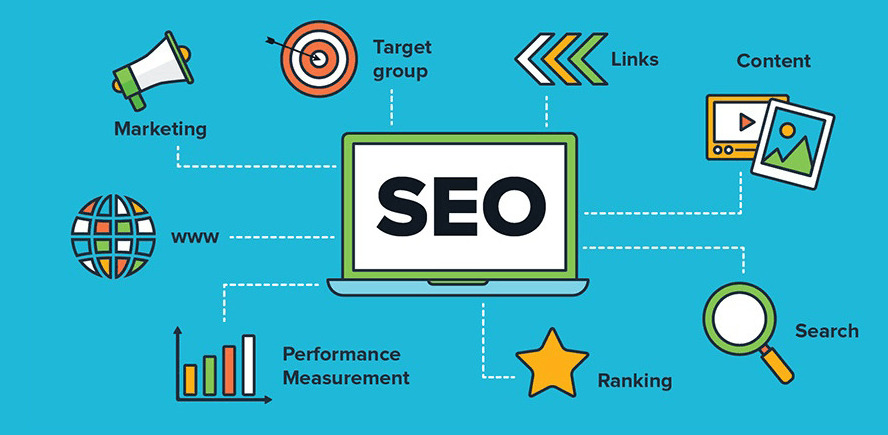In today’s fast-paced digital landscape, finding the right partner to boost your online visibility can make all the difference. Whether you’re a startup or an established brand, choosing an SEO agency that delivers is crucial. But with countless agencies out there, how can one ensure they’re making the right choice? Especially when looking for a specialized SEO company based in Ohio, it becomes imperative to know what metrics to consider and how to evaluate their effectiveness.
For online businesses, this decision is not just about hiring an agency; it’s about investing in a partnership that can significantly impact growth and ROI. As the digital marketplace becomes increasingly competitive, having a trusted and effective SEO company Ohio residents can rely on is more than just a good-to-have—it’s a necessity. This guide aims to help you navigate the often murky waters of SEO agency evaluation, ensuring you’re poised for success.
Understanding the Basics: What is SEO?
Search engine optimization, commonly known as SEO, is a dynamic digital marketing discipline that focuses on enhancing a website’s visibility on search engines. At its core, SEO is about making a website more user-friendly, providing relevant content, and ensuring that search engines can easily crawl and understand your site’s content. When done right, SEO can lead to higher organic search rankings for targeted keywords and phrases. As a result, many businesses search for an “SEO agency near me” to harness the power of SEO and gain a competitive edge in the digital landscape.
However, as simple as it sounds, SEO is more than just inserting keywords or building backlinks. It encompasses a variety of techniques and strategies that work together to improve a website’s overall online presence. From on-page optimizations like content creation and meta tags to off-page efforts like link-building, SEO is a comprehensive approach to digital visibility.
Defining Your SEO Goals
Before diving deep into the metrics, it’s paramount to have a clear understanding of what you want to achieve with your SEO efforts. Are you looking to boost brand awareness, drive more sales, or enhance user engagement on your site? When you search for an “SEO company near me,” you’re seeking a partner to help you reach these goals. But without defining them first, it becomes challenging to measure success or ascertain whether the agency is delivering on its promises.
Having both short-term and long-term goals will provide a roadmap for your SEO journey. Short-term goals include improving rankings for specific keywords or increasing organic traffic. In contrast, long-term objectives could revolve around building a robust backlink profile or achieving a consistent growth rate in organic conversions. With these goals in place, you can effectively communicate your vision and expectations to the SEO agency and ensure both parties are aligned.
Ranking Improvements and Keyword Performance
In the digital marketplace, being noticeable means seizing that coveted spot on the first page of search engine results. When you enlist an SEO agency to augment your online presence, watching for visible enhancements in your website’s ranking is pivotal. Noticeably, a proficient SEO agency will leverage strategic keywords, such as “local SEO agencies near me,” to not only uplift your standing in local searches but to also heighten your visibility to a broader audience. Observing these rankings gives you a tangible measure of how effectively an agency is navigating the complex terrains of search engine algorithms and to what extent their efforts are translating into enhanced online visibility for your brand.
Analyzing keyword performance goes hand in hand with observing ranking enhancements. It’s essential to evaluate how your targeted keywords perform over various timeframes and in different geographical locations. For instance, if a substantial portion of your clientele is local, emphasizing keywords should reflect a strategic move to dominate local search results. Furthermore, examining whether your website is ranking for the intended keywords or if it’s gaining traction for unanticipated ones allows for strategic adjustments. This detailed exploration of keyword data not only helps in gauging the SEO agency’s efficacy but also enables ongoing strategy refinement to ensure that your online content continuously resonates with your target audience’s search behaviors.
Organic Traffic and User Behavior
Organic traffic, arguably the lifeblood of any digital venture, is the stream of visitors that arrive at your website naturally through search engine queries without the aid of paid promotions. This kind of traffic is a genuine testament to the potency of an SEO agency’s strategies. Google Analytics and similar tools offer a treasure trove of data about these visitors. Monitoring trends in organic traffic, whether they’re steady increments or significant spikes, gives insight into the effectiveness of keyword targeting and content relevance. A consistent rise in organic visitors indicates that your SEO efforts are on the right track and that your site’s visibility in search results is improving.
But it’s not enough just to attract users; their on-site behavior is equally vital. Metrics such as bounce rate, average session duration, and pages per session shine a light on user engagement and satisfaction. A low bounce rate coupled with a high average session duration suggests that visitors are finding your content valuable and are sticking around to consume it. Conversely, suppose users are leaving shortly after landing or are not navigating through multiple pages. In that case, it might hint at issues with content relevance, site usability, or page load speeds. While traffic volume indicates awareness, user behavior provides a deeper dive into the quality of this traffic and the resonance of your site’s content.
Backlink Profile and Domain Authority
Backlinks, or the links pointing to your website from other sites, play a pivotal role in shaping the SEO landscape. They’re like votes of confidence from the digital community, signaling the relevance and authority of your content. However, not all backlinks are created equal. It’s crucial to evaluate the quality and relevance of these links. Quality backlinks come from authoritative, industry-related websites and boost your site’s trustworthiness in search engines. Conversely, low-quality or spammy links can negatively impact your SEO efforts, making it essential to regularly audit your backlink profile and remove any harmful links.
Domain Authority (DA) is a metric developed by Moz that predicts how well a website will rank on search engine result pages (SERPs). Ranging from 0 to 100, a higher DA indicates greater chances of ranking. Monitoring your website’s DA gives you an overview of your site’s overall SEO health. Pairing this with a keen observation of your backlink profile can provide a comprehensive view of your site’s standing in the digital sphere.
Conclusion
In the digital realm, choosing the right SEO agency can be the difference between thriving online and getting lost in the vast ocean of content. Metrics, as we’ve discussed, offer concrete evidence of an agency’s performance. But beyond the numbers, it’s the holistic commitment and adaptability of the agency that truly make the difference. Effective SEO is not a one-time task but an ongoing commitment to excellence, adaptation, and learning.
Remember, an SEO agency’s true value isn’t just in boosting rankings or driving traffic but in understanding your business goals, aligning their strategies accordingly, and ensuring that the traffic converts to tangible results. As you navigate your digital journey, keep these key metrics and insights in mind to make the most informed decisions and foster a productive partnership with your chosen SEO professionals.





